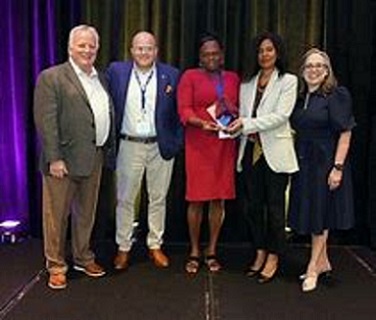The Mayor of the West Midlands and leaders from universities across the East and West Midlands joined forces this week to outline ambitions to counter the region’s annual ‘brain drain’ of graduates to London.
The discussions took place as findings from a new YouGov poll of 2,096 UK adults carried out by the construction and consultancy company Mace. The research revealed that respondents who selected a region outside of London for having the best choices of universities ranked the Midlands as third (chosen by 15%), just behind Scotland (chosen by 16%) and some distance behind the South East (chosen by 29%) perhaps owing to the Oxbridge effect.
The Midlands is well known for its strong industrial sectors including aerospace and car manufacturing, which are bolstered by an array of courses that can be studied in its flagship universities from Electronics and Chemical research, to Physics and Systems Engineering.
Of all those with an opinion on which UK region (excluding London) offers graduates the best career prospects, 10% chose the Midlands, again just slightly ahead of Scotland (chosen by 8%) and with the South East leading, as chosen by 55%.
The polling also revealed that younger people (aged 16-24) who expressed an opinion are more likely to identify the Midlands (17%) as the best region in the UK for graduate career prospects, compared to those in the 40-54 bracket (6%).
Simon Dale, director of the Midlands at Mace, said: “It’s encouraging to see evidence that the Midlands’ universities and its graduate prospects are viewed favourably, especially amongst younger people. This is no doubt owing to the strength of the region’s offer – with institutions like the University of Birmingham and University of Warwick continuing to rank highly in the annual league tables.
“Improving perceptions goes hand in hand with ongoing investment and the growth of core cities like Birmingham over the past couple of decades. However, while high profile projects such as the redevelopment of Birmingham New Street, HS2 and plans for the 2022 Commonwealth Games are contributing towards Birmingham’s strong performance in graduate retention, we need to ensure this positive effect is felt across the entire region so that the Midlands can become a central driver for the UK’s post-Brexit economic growth.”
Over 2 in 5 who chose an option (43%) underestimated that the Midlands had only 2 or less universities in the Complete University Guide’s Top 20 UK universities for 2019. Although 29% correctly picked the right number of Midlands universities (4) which made the list.
West Midlands Mayor Andy Street, said: “With initiatives like our Local Industrial Strategy and the West Midlands Skills Deal, we’re doing everything we can to boost skills across the region and encourage even more graduates to remain in the Midlands once they have finished university.
“It’s therefore fantastic that our region is ranking so highly when it comes to how its universities are perceived on the national stage. The Midlands has a number of leading academic institutions which are to be celebrated for their efforts in driving many of our diverse scientific and industrial sectors such as automotive, advanced manufacturing, life sciences and rail.”

















